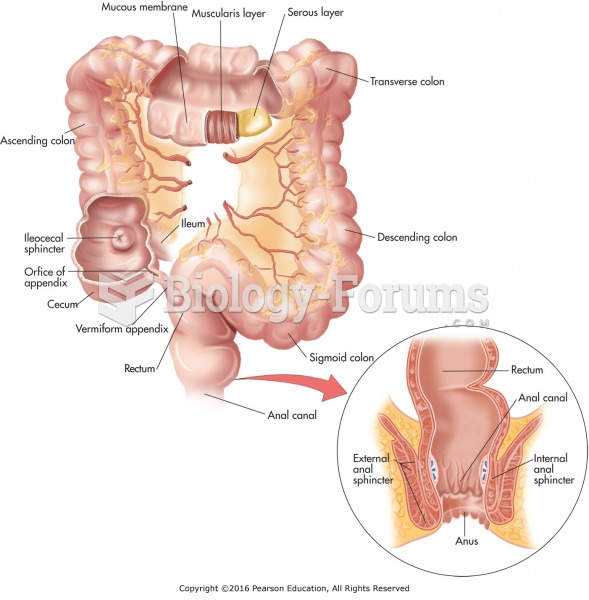|
|
|
In the ancient and medieval periods, dysentery killed about ? of all babies before they reach 12 months of age. The disease was transferred through contaminated drinking water, because there was no way to adequately dispose of sewage, which contaminated the water.
Human stomach acid is strong enough to dissolve small pieces of metal such as razor blades or staples.
Thyroid conditions cause a higher risk of fibromyalgia and chronic fatigue syndrome.
More than 30% of American adults, and about 12% of children utilize health care approaches that were developed outside of conventional medicine.
Patients who cannot swallow may receive nutrition via a parenteral route—usually, a catheter is inserted through the chest into a large vein going into the heart.







